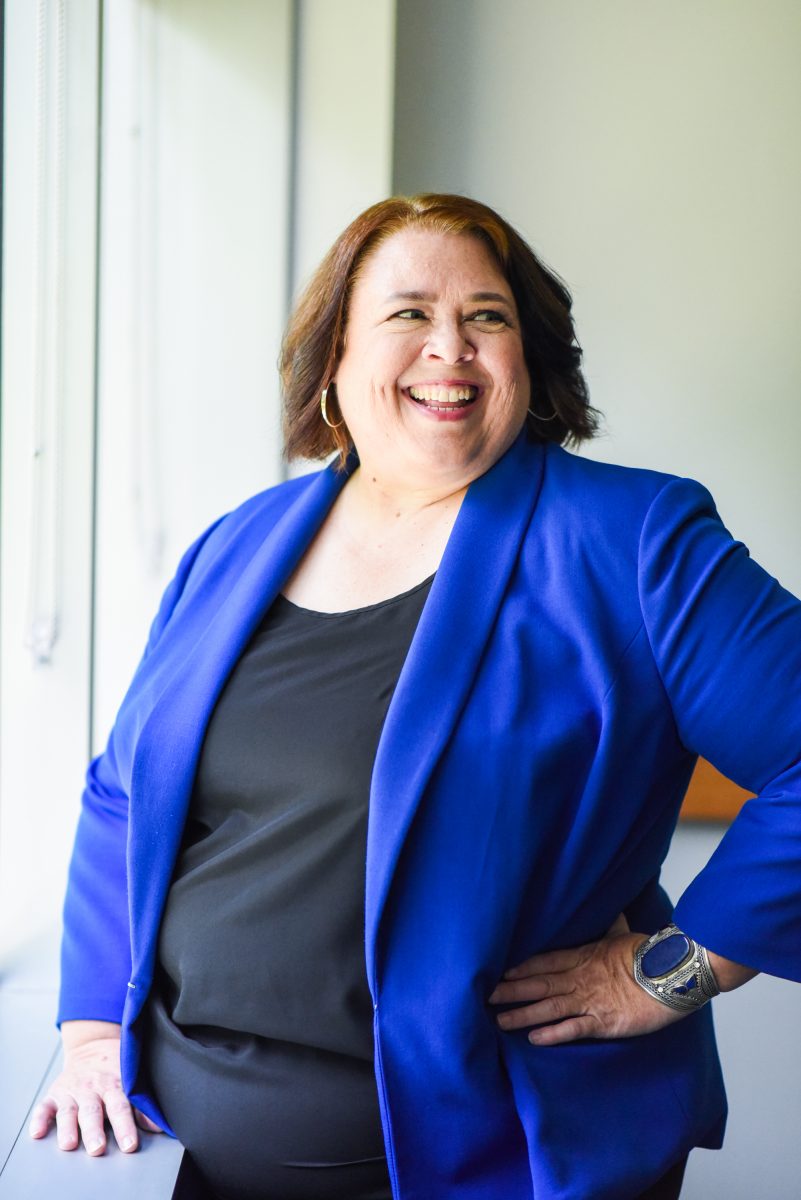
How to Plan For the Future—Even During a Pandemic
Sandi Mitchell, CEO of Apex Catalyst Group, shares how she helps guide her clients through the process of planning for the future of their businesses and why she believes God deserves a prominent place in your business strategy. (If you missed Sandi’s Work, Love, Pray episode last year, click here to listen to her talk about ways to overcome team conflict!)
Tell our readers a little bit about yourself!
I’m Sandi Mitchell, CEO of Apex Catalyst Group, a firm that helps leadership teams build a sustainable, growing business that gives them and their people what they want from the business. I absolutely love what I do because leadership teams become stronger (and, you know, as goes the leadership team, so goes the rest of the organization) and better decision makers, and we get to talk about God while doing it! My company helps great people build great companies. We help business owners and their leadership teams crystallize their vision, instill a discipline of accountability, and gain traction on hitting their goals – every time. And still, my rescue pups, Coco and Chanel, rule the house!
In your opinion, what is the most stressful part of planning for a new year? What added stressors has the pandemic work environment and culture brought to the process?
I honestly always think of planning for a new year as exciting, not stressful. And yet, the pandemic has created all kinds of new “opportunities” for us as business leaders. Not only are we thinking about what we can accomplish in 2021, but how are we going to do it? Will our people still be dispersed, working from home? How do we keep them engaged and productive and healthy? Will the economy even out (or, fingers crossed, go up!)? Can I plan for growth in 2021? Will the government shut down businesses if the virus hits hard again? So many questions.
So, I think the most stressful part of this right now is the unknown. Planning for the future is always a guesstimate, and yet we typically have a little better handle on predictions than we do right now.
What can we do? See the next question!
Why should Christian professionals give God a prominent spot in their business planning?
I heard this story in a sermon recently: Say you go to the grocery store and as you’re out in the parking lot you realize they’ve given you too much change. Do you:
- Keep it (finders keepers!)
- Take it back because it’s the right thing to do
- Take it back because that’s honoring God
My brain immediately turned that to business. Do we do what we want in our businesses and hope it turns out well? Do we try to do the right thing, with our people, our company, our environment? Or do we consistently ask God what the right thing is and do that?
Here’s what I have discovered: When I make plans without God, I am not ever as successful as I am when God is in the midst of the plans! When I am faithful, when I listen in my prayers as much as or more than my asking or telling God what I need, and when I am consistent over time with God, I am successful.
I feel like God has this fountain of blessings just pouring out and most of us stick to the sidelines and get a few sprinkles every now and then. I want to be in the midst of the outpouring of blessings because I am holding God’s hand while running our business. No matter what happens, how I respond shows myself and others who God is in me. Am I resilient? Am I strong? Am I vulnerable? Am I honest? Am I thoughtful? Am I joyous even when there doesn’t seem to be a reason to be joyful?
What you believe about God shows up in your decisions, in your actions, in your interactions with others. How are you showing up?
Most of my clients are faith-based and with many of them, we pray before we start our sessions. We make lots of decisions in the room about next steps, where we’re going from here, who we’re taking with us, and who we need to hire to get us there. We try to do all of that with God in the midst of the conversation. We’re not abdicating our responsibilities, not being robots for God. I believe God trusts us as His shepherds to do the right thing because we are doing our business to glorify Him. I talk about God all the time in my training, in my strategy sessions, and with the people who are not faith-filled—they just don’t know that I’m talking about God. Because He’s so practical, it totally fits in a business conversation! Invite Him into the strategy room with you.
Is there anything professionals or entrepreneurs can do to make their 2021 plans as pandemic-proof as possible?
What a great question! We probably can’t be pandemic-proof, or “whatever the next disaster that comes our way”-proof, but we can be strategic, smart, and flexible in our plans.
Have your “triggers” planned out—if X happens, then we’ll do Y. It’s a good strategy anyway, but even more important in crazy, unpredictable times. I work with my clients on reverse organizational charts (I call them Accountability Charts) for situations like this. What triggers do you want to put in place if we encounter more shutdowns? What triggers do you want to put in place if we have a great growth spell?
To me, having strong, flexible plans comes from having diversity in your leadership team. Do you have people on the team who share your values but look at things differently, grew up differently so they have different perspectives than you? When you have this diversity you have a greater chance of seeing different obstacles and different ways out/over/through them.
If you don’t have that diversity, I highly recommend you start there and get an Advisory Board in the meantime. You can only know and see things the way you see them. You can’t see things differently until you are challenged to do so. Carl Ice, former CEO of BNSF Railways, used to assign someone on the leadership team the role of Challenger. They were to challenge every idea before it became an agreed-upon decision. He didn’t want a room full of yes men all seeing things the same way. He needed people to look at different perspectives. You do, too.
What is the one thing you would tell any professional who is standing at the start of 2021 with hesitation or even fear in their heart?
As it says in 2 Timothy 1:7 “…for God gave us a spirit not of fear but of power and love and self-control.”
There is a great book called The Obstacle is the Way, and in it, author Ryan Holiday says that if we allow it to, the obstacle we are facing can and will become a stepping stone. Too many people allow obstacles to stop them from achieving their goals. When we as Christians face obstacles, we have God saying, Isaiah 41:13 “For I, the LORD your God, hold your right hand; it is I who say to you, ‘Fear not, I am the one who helps you.’”
We can figure out a way to get around it, under it, over it, or through it. But IT becomes the very thing we need to push to the other side. The obstacle becomes our impetus to keep trying, to recognize that it is simply the refiner’s fire. 1 Peter 6-7 says, “I know how great this makes you feel, even though you have to put up with every kind of aggravation in the meantime. Pure gold put in the fire comes out of it proved pure; genuine faith put through this suffering comes out proved genuine. When Jesus wraps this all up, it’s your faith, not your gold, that God will have on display as evidence of his victory.”
This is simply another obstacle along the way, albeit a huge one! How will you use it to deepen your relationship with God, with His community, with your people? How will you rely on Him to help you through to the other side?
Anything else you’d like to share?
Absolutely! We are starting a monthly executive roundtable to discuss the challenges and joys of running a family-owned business. Our first session is called Who Will Take Over The Business? Planning for your company’s future. If you are interested, please email me to find out more about it and/or to reserve your free spot for the Feb 3, 8-9:30am Zoom session. The format is primarily a discussion among you: the CEOs, Founders, Presidents, Executives of your companies, facilitated by me, Lead Faculty for the Goldman Sachs 10,000 Small Businesses program in Dallas/Fort Worth. Leaders of both family-owned businesses and non-family-owned businesses are welcome. The session is designed for a small group of people to have thought-provoking and tactical execution discussions. Sign up quickly to get a seat!

Sandi Mitchell is CEO of Apex Catalyst Group. She works with leaders from small businesses to major corporations and nonprofits to help improve and/or accelerate in areas such as: leadership, new manager transitions, team alignment, communication, emotional intelligence, strategic planning, negotiations, work place stress and employee engagement. Sandi has over 25 years working in the corporate world, as a business owner, as a Professional EOS Implementer, and as a certified Executive Coach. Her experience is in learning and development, business operations, sales, and management. She is a bestselling author and has written Coloring Outside the Lines: A Grown Up’s Creative Guide to Increasing Emotional Intelligence.

This blog is sponsored by ARMORED, a memoir, a love story, and practical leadership guide to managing crisis on your own terms. Click here to order ARMORED and use promo code “4WORD” to save $10 off a $40 or more purchase.
(Offer good through January 31, 2021)